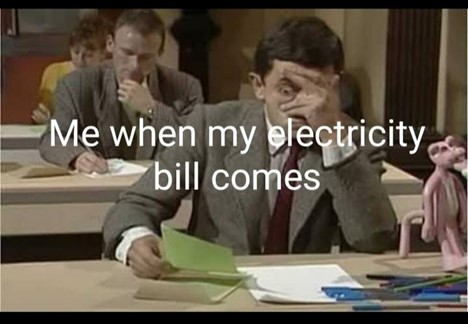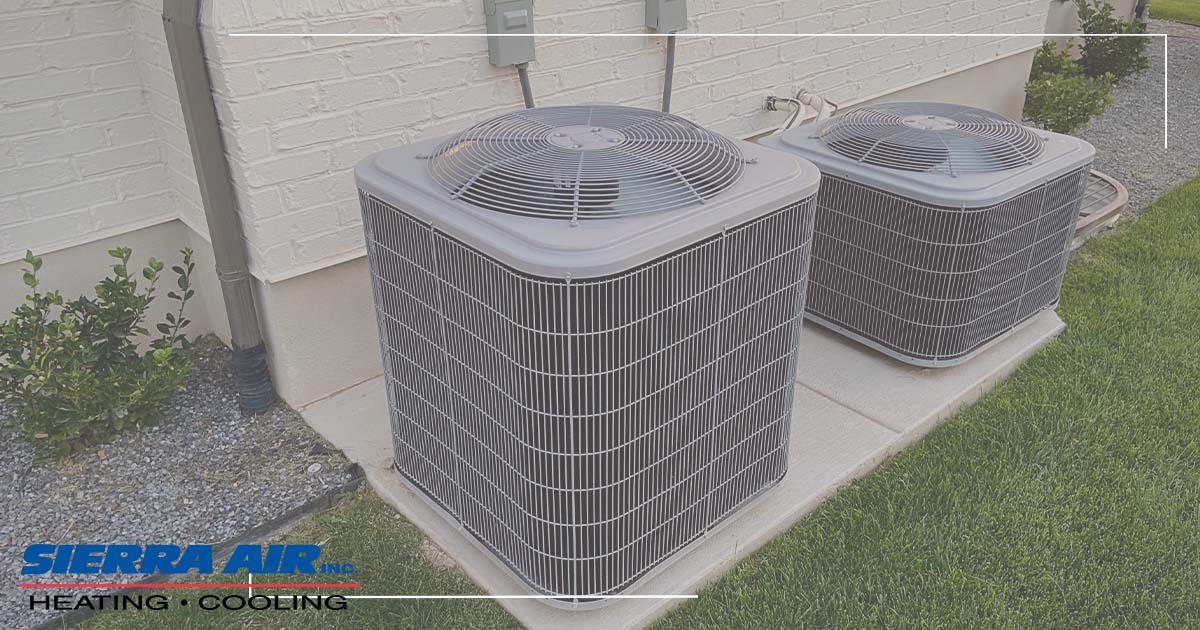The Biden Administration recently passed the most significant climate legislation in US history, the Inflation Reduction Act of 2022 (IRA) to accelerate the transition to cleaner energy and reduce carbon emissions.
Learn more about the federal AC rebates and see how you can upgrade your home while maximizing your tax benefits.
The Inflation Reduction Act
The IRA was signed into law on August 16, 2022, and contains $500 billion in new spending and tax breaks to reduce carbon emissions, offset the effects of inflation, fund the Internal Revenue Service, improve taxpayer compliance, and reduce healthcare costs.
The IRA invests $369 billion into clean energy sources and technologies, which includes significant rebates and tax incentives for homeowners who purchase energy-efficient home heating and cooling systems.
Benefits of an Energy-Efficient AC
Aside from the tax credit or rebate savings, there are plenty of benefits to energy-efficient AC Systems:
Utility Bill Savings
As the name suggests, energy-efficient air conditioners optimize your energy usage by using only enough energy to power your AC and keep your home comfortable. An energy-efficient system not only saves you money on your energy bill, but it’s better for the environment.

AC Longevity
AC systems take wear and tear over the years, especially if they’re overworked. When it has to work too hard due to inefficiency, it adds more wear and stress to the system. Overworked AC systems tend to break down more easily and thus require more frequent repairs.
An energy-efficient AC system only puts out enough power to cool your home, reducing the stress that can lead to repairs or breakdowns. Upgrading your AC is an investment that will pay off in cost savings in the future.
State and Local Requirements
Though not nationwide, several states have adopted energy-saving initiatives and rules governing vehicle or appliance efficiency. These initiatives provide the foundation to scale efficiency programs to make everyone more efficient.
Depending on your area, you may be required to purchase and install more energy-efficient appliances or upgrades to stay compliant.

Eco-Friendly
We’re in the middle of an environmental crisis that’s only worsening by the day. There are small steps we can all take to reduce our carbon footprint and do our part for the environment, including upgrading to an eco-friendly (energy-efficient) AC system.
Efficient AC systems can have a dramatic effect on your energy usage – up to 40% reduction, in some cases. Combined with other environmentally friendly initiatives, you can be sure that you’re running your home with the least environmental impact without sacrificing your comfort.
Which Systems Qualify?
According to the Consortium for Energy Efficiency (CEE), federal tax credits are available across several project categories, including:
- Electric or gas heat pump water heaters
- Electric or natural gas heat pumps
- Central air
- Gas, propane, or oil furnace boilers
- Gas, propane, or oil water heaters
The IRA categorizes the eligible products by CEE tiers. Tax credit eligible tiers may be Tier 1, 2, or 3, depending on the specific product category. CEE tier products are all ENERGY STAR® certified energy-efficient systems.
Federal Tax Credits Available
Tax Section 25C

The 25C Residential Energy Efficiency Tax Credit launched a new version in 2023, under the IRA, to incentivize household electrification by lowering the total costs of qualified upgrades. The tax credit has a cap of 30% for:
- Heat pumps
- Heat pump water heaters (HPWHs)
- Qualifying electrical panel upgrades
- Select weatherization measures
- Energy audits
With this new incentive, air source heat pumps for space heating and cooling, as well as HPWHs, will be eligible for a tax credit up to $2,000 per year. Electric panel upgrades that are installed alongside a heat pump or HPWHs will be eligible for up to $600.
25C resets each year, so households can make upgrades over multiple years and likely claim tax credits for each upgrade. For example, one year you can claim 25C with a heat pump, then a HPWH and electrical panel upgrade the following year.
The tax credit and rebates on AC purchase, replacement, and installation cover a range of other appliances and upgrades. Here’s the breakdown:
Federal Tax Credits
The annual limits for the federal tax credit are 30% of the project cost, or up to $3,200 annual maximum for all energy efficiency improvements. The limits are:
- Up to $2,000 toward the purchase of air source heat pumps, heat pump water heaters, and biomass stoves or boilers annually
- Up to $1,200 toward the purchase of central AC, furnaces, boilers, and eligible home improvements like new windows or insulation annually
- Per-project limits for AC and furnaces
The new equipment must be purchased and installed between January 1, 2023, and December 31, 2032, in an existing home that is a principal residence. Rentals and new construction aren’t eligible.
A new system for energy efficiency went into effect on January 1, 2023. Seasonal Energy Efficiency Ratio 2 (SEER2), Heating Seasonal Performance Factor 2 (HSPF2), and Energy Efficiency 2 (EER2) replaced the previous rating system.
The tax credits on the AC and heat pump have additional requirements.
Central Air Conditioners
- 30% of the project cost, up to $600 maximum
- Split Systems must be ENERGY STAR® certified with SEER2 ≥ 16
- Packaged Systems must be ENERGY STAR® certified with SEER2 ≥ 15.2, EER2 ≥ 11.5
Air Source Heat Pumps
- 30% of the project cost, up to $2,000 maximum
- Ducted split systems must be ENERGY STAR® certified with HSPF ≥ 7.8, SEER2 ≥ 15.2, EER2 ≥11.7
- Packaged systems must be ENERGY STAR® certified with SEER2 ≥ 15.2, EER2 ≥ 11.5
- Ductless mini-split (non-ducted) Systems must be ENERGY STAR® certified with SEER2 ≥ 16, EER2 ≥ 12, HSPF2 ≥9
For ENERGY STAR® Cold Climate models, the following apply:
- Ducted systems (split and packaged) must be SEER ≥ 15.2, EER2 ≥ 10 and HSPF2 ≥ 8.1
- Mini-split systems must be SEER2 ≥ 16, EER ≥ 9, and HSPF ≥ 9.5
HEEHRA Act Energy Efficiency Rebates
The IRA includes rebates or tax deductions for homeowners who purchase a new heat pump, which is covered by the High Efficiency Electric Home Rebate Act (HEEHRA) incentive program. This is also known as the Zero-Emission Homes Act (ZEHA).
This program provides point-of-sale rebates, which are automatically deducted at the time of purchase, on any heat pump used for home heating and cooling up to $8,000. Homeowners will not need to send in a rebate to receive a refund. The amount of the rebate depends on household income and the type of heat pump you purchase, however.

HEEHRA is a voluntary program that covers 100% of electrification costs – up to $14,000 – for low-income households. Moderate-income households receive 50% of costs – up to $14,000. You can check your income comparison at Fannie Mae.
Qualified electrification projects include:
- Heat pump HVAC systems
- Heat pump water heaters
- Electric stoves and cooktops
- Heat pump clothes dryers
- Upgrades like insulation, air sealing, circuit panels, ventilation, and wiring
Project costs include the purchase and installation costs, with the rebate going into effect at the time of purchase.
Rebates amounts for heat pumps, heat pumps water heater, and electric panel upgrade.
Qualifications
Because the IRA distributes funding to the state energy office, in some cases, the qualifications and applications must be provided by the agency that runs the program. In some states, federal agencies like the EPA will handle funding distribution.
The IRA is new, so homeowners can expect updates as the program is rolled out. Keep in mind that some states may not include this program.
Save More with Local Energy Rebates
In addition to the IRA and other federal tax credits and rebates on energy-efficiency upgrades, you can find financial incentives on the state or local level. Some of these include:
State Energy Office
Many states offer incentives for energy-efficiency upgrades, such as tax credits, rebates, deductions, and loans. Check with your local state energy office for available programs.
Utility Companies
Some utility companies offer utility rebate discounts or incentive programs to help homeowners reduce energy consumption and save on utility costs. Check with your local utility company for available options.
Manufacturers
Some manufacturers offer energy-efficiency rebates for upgrades. Look for available rebates on certain ENERGY STAR® certified products.
Combining State and Federal Rebates
Generally, you can claim multiple tax credits to reduce your tax liability and maximize your tax benefits from energy-efficient investments. There are limits to combining certain rebates on the same project, such as the home electrification rebate and the home efficiency rebate.
Be sure to consult with a tax professional to get the most out of your home improvements and upgrades come tax season.

How to Apply for Tax Credits and Rebates
Tax credits and rebates are used synonymously, but they’re different. Tax credits are intended to offset the total tax balances due, so they typically apply only to people who owe on their taxes at the end of the year. Tax rebates are paid to a taxpayer, no matter if they have a payable tax.
Information about how to apply for the energy rebate isn’t yet available. State governments are responsible for the HEEHRA rebates, and we can expect an update in spring of 2023. These rebates will be available while funding lasts.
Are you considering efficiency upgrades for rebates on AC purchase and installation? Contact the pros at Sierra Air to learn more about federal energy-efficient ACs.


